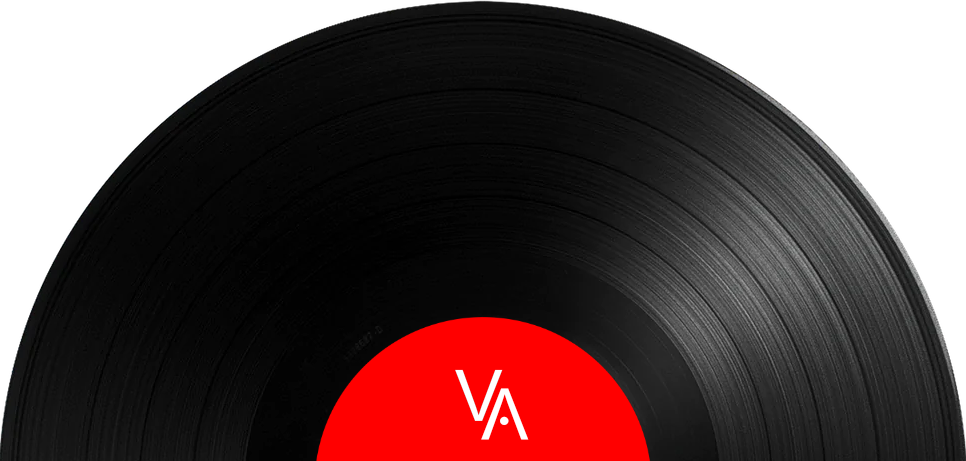
Muddy Waters was only 68 when he died in 1983, and he was by then (and by far) the best known bluesman in the world. But without the 1960s British rockers he influenced reinterpreting his music and feeding it back to white America, it is possible we may never have heard of him at all.
The Rolling Stones, Eric Clapton, Jimi Hendrix, Johnny Winter - they all covered his songs and introduced his music to an new generation, myself included, and this all happened while his own recordings went almost unnoticed other than the occasional appearance in random compilations. Not until MCA, who by then owned Chess Records, reissued Muddy's songs on its Chess reissue series did he start to get his due.
The Chess Box is a real blues feast. Six LPs jammed full of classics, rarities, castoffs, alternate takes and curiosities. It is - in my opinion - the best Muddy Waters compilation ever released, and as a career-spanning compilation it is hard to beat. It's not just quantity; the sound and production is really good, too. A lot of care went into this. It's a shame this collection wasn't released while Muddy was alive so he could have basked a little in the light it cast on him.
There are other compilations out there. An 11-LP box issued in Japan on P-Vine comes to mind, but I've never heard it and can't imagine it sounds any better. And I also have quite a few of Muddy's LPs, which is actually how I prefer to listen to him. An album somehow seems so much more cohesive. Folk Singer is one example. It has continuity and stands up well on its own - and it is almost completely absent from this box.
But as an introduction to the blues of Muddy Waters - or just the blues, period - this is a terrific box, a great overview. If I had a bunch of them I'd gift them away to everybody I know.
Muddy's voice was powerful. It came up from way down deep somewhere and could shake the walls. Muddy first gained attention with his early-1940s recordings made for the Library of Congress, so his confidence and singing ability was already well-developed by the time he cut his first sides for Leonard and Phil Chess. The first three sides of The Chess Box alone (highlighting the years from 1947 to 1954) delivers I Can’t Be Satisfied, Rollin’ and Tumblin’ and Long Distance Call.
Rollin' Stone is in there, too, and we all know about the influence it had on a group of young British blues musicians who were looking for a name for their band. And then there's that young American folk singer. Mr. Zimmerman. I believe?
But it doesn't stop there. Side five alone serves up I Just Want To Make Love To You, I'm Ready, Smokestack Lightning and Mannish Boy. Flip the record over and it goes right into Forty Days And Forty Nights. How good is that?
The extraordinary power of Muddy's guitar playing, along with that formidable voice, really came into its own during the 1950s thanks, in part, to the production abilities of Leonard and Phil Chess (but mostly Leonard, who was the hands-on studio half of the brothers' partnership). And while Muddy wrote his own songs - Got My Mojo Working, Mannish Boy - it was more his fierce delivery of Bo Diddley’s I’m a Man and the genius of Willie Dixon's songwriting that defined his recorded output during this time. That's because he owned the songs penned for him - not literally, but in the way that once you hear them it becomes a Muddy Waters tune. Nobody else can ever do it anywhere near as good.
Session sidemen like pianist Otis Spann, harpists Little Walter and James Cotton, guitarist Jimmy Rogers and drummer Francis Clay helped define Muddy's sound in such a way that, once the songs were heard by a post-war and music-starved new generation overseas, they set off a virtual blues revolution. It was old music made new again, Waters' delivery regurgitated though British youth. It really was like a bomb going off, although it did little to enrich Muddy himself. When the Rolling Stones first met him at the Chess Records studio, in 1964, he was painting the ceiling!
Many of the 1960s and 70s tracks that appear on The Chess Box are rare or previously unissued. The albums he was releasing at the time - such as 1966's unexceptional Muddy, Brass and the Blues, which I also have but for some reason seldom play - were attempts to monetize Muddy's growing popularity, to show how hip and "with it" he was. Jessie Mae Robinson's Black Night appeared on that LP, all dressed up and overdubbed with horns. But here it's an alternate take that's used instead, and it's much better as a hornless version. There are several other alternate takes from this period that are represented here and that, to me, is worth the price of admission alone.
Robert Palmer’s essay in the included booklet that is included is a wonderful read! This is an excellent box that sounds great and hits all the right notes.
Muddy Waters was only 68 when he died in 1983, and he was by then (and by far) the best known bluesman in the world. But without the 1960s British rockers he influenced reinterpreting his music and feeding it back to white America, it is possible we may never have heard of him at all.
The Rolling Stones, Eric Clapton, Jimi Hendrix, Johnny Winter - they all covered his songs and introduced his music to an new generation, myself included, and this all happened while his own recordings went almost unnoticed other than the occasional appearance in random compilations. Not until MCA, who by then owned Chess Records, reissued Muddy's songs on its Chess reissue series did he start to get his due.
The Chess Box is a real blues feast. Six LPs jammed full of classics, rarities, castoffs, alternate takes and curiosities. It is - in my opinion - the best Muddy Waters compilation ever released, and as a career-spanning compilation it is hard to beat. It's not just quantity; the sound and production is really good, too. A lot of care went into this. It's a shame this collection wasn't released while Muddy was alive so he could have basked a little in the light it cast on him.
There are other compilations out there. An 11-LP box issued in Japan on P-Vine comes to mind, but I've never heard it and can't imagine it sounds any better. And I also have quite a few of Muddy's LPs, which is actually how I prefer to listen to him. An album somehow seems so much more cohesive. Folk Singer is one example. It has continuity and stands up well on its own - and it is almost completely absent from this box. But as an introduction to the blues of Muddy Waters - or just the blues, period - this is a terrific box, a great overview. If I had a bunch of them I'd gift them away to everybody I know.
Muddy's voice was powerful. It came up from way down deep somewhere and could shake the walls. Muddy first gained attention with his early-1940s recordings made for the Library of Congress, so his confidence and singing ability was already well-developed by the time he cut his first sides for Leonard and Phil Chess. The first three sides of The Chess Box alone (highlighting the years from 1947 to 1954) delivers I Can’t Be Satisfied, Rollin’ and Tumblin’ and Long Distance Call.
Rollin' Stone is in there, too, and we all know about the influence it had on a group of young British blues musicians who were looking for a name for their band. And then there's that young American folk singer. Mr. Zimmerman. I believe?
But it doesn't stop there. Side five alone serves up I Just Want To Make Love To You, I'm Ready, Smokestack Lightning and Mannish Boy. Flip the record over and it goes right into Forty Days And Forty Nights. How good is that?
The extraordinary power of Muddy's guitar playing, along with that formidable voice, really came into its own during the 1950s thanks, in part, to the production abilities of Leonard and Phil Chess (but mostly Leonard, who was the hands-on studio half of the brothers' partnership). And while Muddy wrote his own songs - Got My Mojo Working, Mannish Boy - it was more his fierce delivery of Bo Diddley’s I’m a Man and the genius of Willie Dixon's songwriting that defined his recorded output during this time. That's because he owned the songs penned for him - not literally, but in the way that once you hear them it becomes a Muddy Waters tune. Nobody else can ever do it anywhere near as good.
Session sidemen like pianist Otis Spann, harpists Little Walter and James Cotton, guitarist Jimmy Rogers and drummer Francis Clay helped define Muddy's sound in such a way that, once the songs were heard by a post-war and music-starved new generation overseas, they set off a virtual blues revolution. It was old music made new again, Waters' delivery regurgitated though British youth. It really was like a bomb going off, although it did little to enrich Muddy himself. When the Rolling Stones first met him at the Chess Records studio, in 1964, he was painting the ceiling!
Many of the 1960s and 70s tracks that appear on The Chess Box are rare or previously unissued. The albums he was releasing at the time - such as 1966's unexceptional Muddy, Brass and the Blues, which I also have but for some reason seldom play - were attempts to monetize Muddy's growing popularity, to show how hip and "with it" he was. Jessie Mae Robinson's Black Night appeared on that LP, all dressed up and overdubbed with horns. But here it's an alternate take that's used instead, and it's much better as a hornless version. There are several other alternate takes from this period that are represented here and that, to me, is worth the price of admission alone.
Robert Palmer’s essay in the included booklet that is included is a wonderful read! This is an excellent box that sounds great and hits all the right notes.


